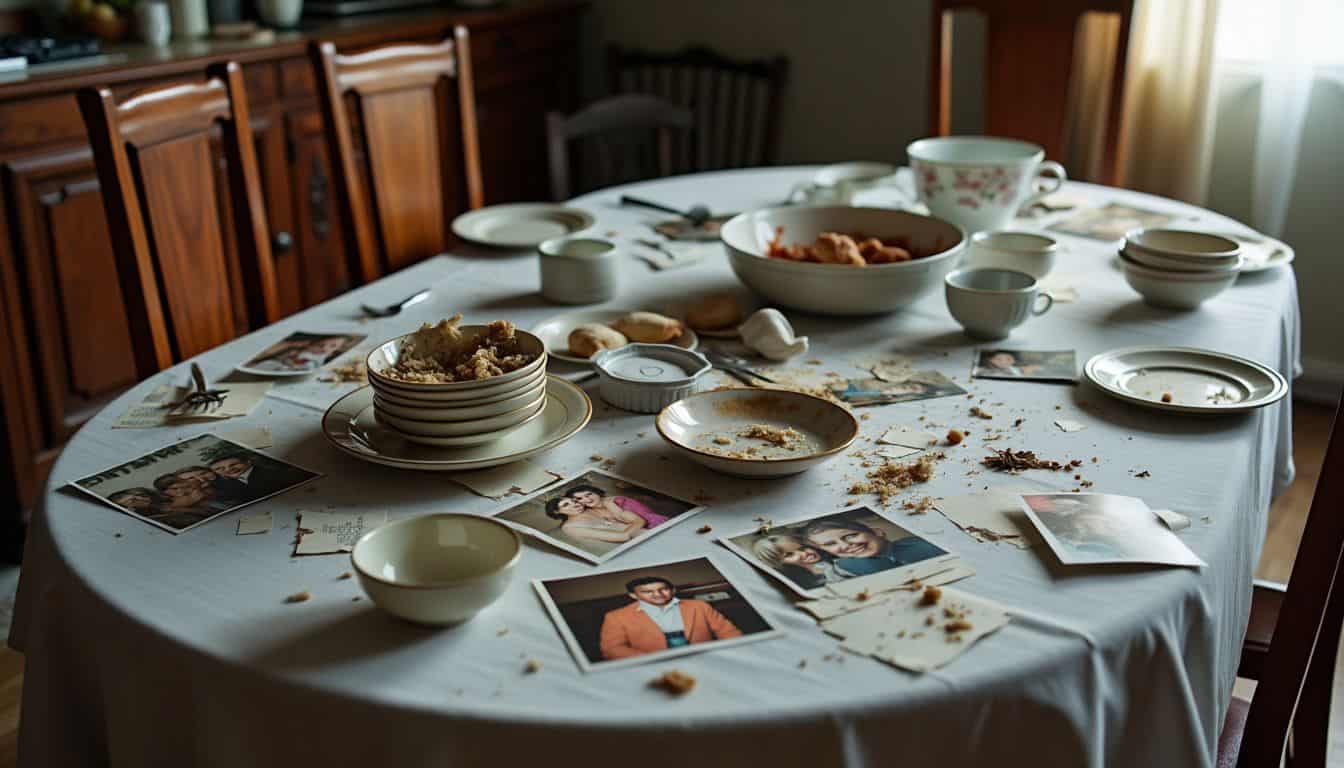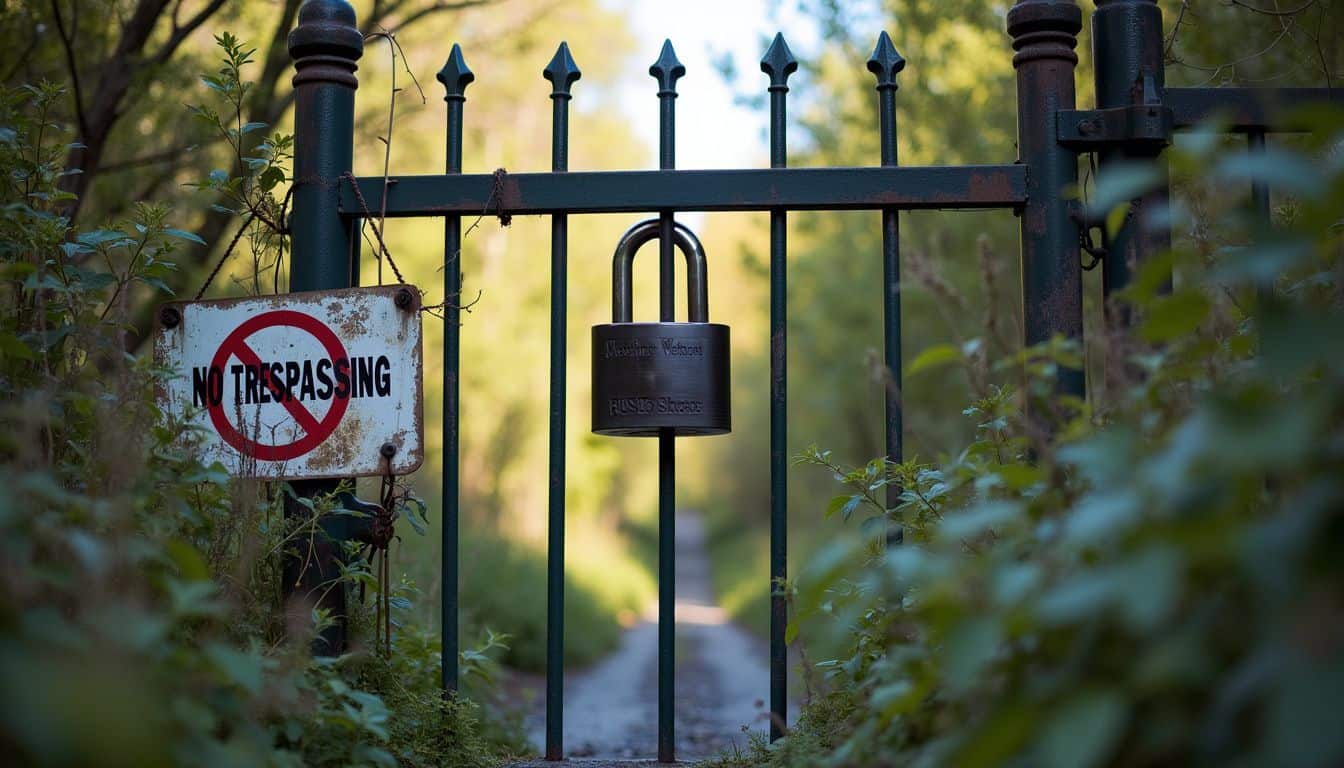Is your daughter-in-law causing tension in the family? You’re not alone. Many mothers-in-law struggle with difficult relationships. This article will help you spot toxic behavior and learn how to handle it.
Ready to bring peace back to your family?
Key Takeaways
Toxic daughters-in-law may show controlling behavior, mood swings, disrespect, blame-shifting, manipulation, limiting access to grandchildren, passive-aggressive comments, and negativity on social media.
Coping strategies include maintaining cordial relations, setting clear boundaries, communicating honestly, considering family counseling, connecting independently with your son, and avoiding unnecessary conflict.
Building a positive relationship involves showing genuine interest in her life, respecting her family role, finding common ground, and extending kindness and understanding.
Seeking professional help through family therapy can provide fresh perspectives and tools to improve communication and resolve conflicts.
It’s okay to step back and prioritize your own well-being if the relationship becomes too damaging to your mental health.
Table of Contents
Recognizing Signs of a Toxic Daughter-in-Law

Spotting a toxic daughter-in-law isn’t always easy. But there are telltale signs that can help you identify trouble brewing in your family dynamic.
Exhibiting Controlling Behavior

Controlling daughters-in-law often try to run the show. They might boss everyone around, make all the big choices, or keep tabs on what you’re doing. It’s like they’re pulling the strings for the whole family.
This hurtful behavior can leave you feeling small and powerless.
Look out for signs of control in daily life. Does she decide where family gatherings happen without asking? Maybe she tells you how to dress or act around the grandkids. These are warning signs.
A healthy relationship respects your choices and space. It’s okay to speak up if you feel pushed around.
The need for control often stems from fear. Understanding this can be the first step towards healing family relationships. – Dr. Jane Smith, Family Therapist
Showing Unpredictability and Mood Swings

Toxic daughters-in-law often show wild mood swings. One minute they’re sweet as pie, the next they’re breathing fire. It’s like walking on eggshells – you never know what’ll set them off.
These sudden shifts can leave you feeling confused and on edge. You might start to dread family gatherings, unsure which version of her will show up.
This unpredictable behavior isn’t just annoying – it’s a red flag. It points to deeper issues like selfishness or manipulation. Maybe she’s trying to keep everyone off-balance so she can control things.
Or perhaps she’s dealing with her own demons. Either way, it’s not fair to you or the rest of the family. Spotting these signs early can help nip problems in the bud before they grow into full-blown family feuds.
Disrespecting Family Members

Toxic daughters-in-law often show their true colors through disrespect. They might mock your cooking or roll their eyes at your stories. These jabs aren’t just rude – they’re hurtful.
Family gatherings become a minefield of snide remarks and cold shoulders. You’re left feeling small and unwanted in your own home.
But it’s not just about you. A disrespectful daughter-in-law can poison the whole family tree. She might badmouth other relatives or stir up old feuds. Her lack of empathy creates tension at every turn.
It’s like walking on eggshells, never knowing what’ll set her off next. This behavior chips away at family bonds, leaving everyone on edge.
Blaming Others for Conflicts

Toxic daughters-in-law often point fingers when things go wrong. They refuse to own up to their part in family squabbles. Instead, they blame everyone else – especially you. This behavior stems from a need to feel superior or to avoid facing their own flaws.
It’s a red flag when your daughter-in-law never admits fault. She might twist facts or make up stories to paint herself as the victim. This blame game can cause huge rifts in families.
It leaves others feeling hurt and confused. Recognizing this pattern is key to addressing the issue head-on.
When you blame others, you give up your power to change. – Robert Anthony
Manipulating Situations and People

Moving from blame to control, some toxic daughters-in-law take it up a notch. They twist facts and pull strings to get their way. It’s like they’re playing chess, and everyone else is just a pawn.
They might cry to get sympathy or lie to make others look bad. These master puppeteers know how to push buttons and get what they want.
This behavior can leave you feeling lost and confused. One day, she’s sweet as pie. The next, she’s cold as ice. It’s hard to know where you stand. She might use your grandkids as bargaining chips or turn your son against you.
It’s a tricky dance, and she’s leading. But don’t lose hope! Spotting these tricks is the first step to dealing with them.
Limiting Access to Grandchildren

Difficult daughters-in-law can be… well, challenging when it comes to grandkids. They might use the little ones in their power plays – a move that’s pretty tough to deal with. They’ll come up with reasons, change plans at the last second, or just say no to visits.
This can leave grandparents feeling stuck and upset.
But hang in there! If things get really rough, you might want to chat with a lawyer. They can fill you in on your rights as a grandparent. It’s not the most fun thing to think about, but sometimes it’s the way to go to keep those important family connections.
Up next, we’ll check out how these tricky in-laws spread their negativity online.
Making Passive-Aggressive Comments

Passive-aggressive comments can be a real pain. Your daughter-in-law might say things like, “Oh, you’re wearing that?” or “I guess that’s one way to do it.” These jabs seem harmless but pack a punch.
They create tension and make you feel small. It’s like walking on eggshells – you never know when the next zinger will come.
Family gatherings become a minefield of hidden insults. Your daughter-in-law might praise another family member to put you down. Or she’ll make backhanded compliments that leave you feeling confused and hurt.
This behavior often turns partners against their parents, causing rifts in the family. It’s a tricky situation that needs careful handling to keep the peace.
Spreading Negativity on Social Media

Social media can be a breeding ground for family drama. Some toxic daughters-in-law use these platforms to spread gossip and negativity about their in-laws. They might post passive-aggressive comments or share unflattering photos without permission.
This online behavior can hurt feelings and damage relationships.
Setting clear social media boundaries is key. Have a frank talk about what’s off-limits to post online. If problems persist, consider unfollowing or muting her accounts for your peace of mind.
In severe cases, seeking help from a family therapist may be necessary to address the root issues causing this harmful online behavior.
The tongue has no bones, but it’s strong enough to break a heart.
Managing a Toxic Daughter-in-Law

Dealing with a toxic daughter-in-law can be tough. But don’t worry – there are ways to handle it without losing your cool. Let’s dive into some smart moves you can make to keep the peace and protect your sanity.
Maintaining Cordial Relations
Keeping things friendly with a difficult daughter-in-law isn’t easy. But it’s key for family peace. Here’s how to maintain cordial relations:
- Stay cool as a cucumber. When she pushes your buttons, take a deep breath. Count to ten if you need to. This helps you avoid knee-jerk reactions.
- Kill ’em with kindness. A smile and a kind word can work wonders. Even if you don’t feel like it, be nice. It’s harder for her to be nasty if you’re sweet.
- Find common ground. Maybe you both love cooking or hiking. Focus on shared interests. It gives you something positive to talk about.
- Set clear limits. Let her know what’s okay and what’s not. Be firm but polite. Say, “I’d love to visit, but I need a day’s notice.”
- Pick your battles wisely. Not everything is worth fighting over. Let small stuff slide. Save your energy for big issues.
- Use “I” statements. Instead of “You’re so rude,” try “I feel hurt when you ignore me.” It’s less likely to make her defensive.
- Give her space. Don’t smother or hover. Respect her need for alone time with your son and grandkids.
- Keep conversations light. Stick to safe topics like the weather or current events. Avoid hot-button issues that might spark conflict.
- Be a good listener. Sometimes, people just want to be heard. Let her talk without jumping in to fix things or give advice.
- Practice empathy. Try to see things from her point of view. It might help you understand her actions better.
Establishing Clear Boundaries
After keeping things friendly, it’s time to set some limits. Creating clear boundaries helps protect your well-being and shows self-respect.
- Be straightforward: Tell your daughter-in-law exactly what you will and won’t accept. No sugarcoating.
- Keep calm: Stay composed when setting the rules. A cool head gets your message across better.
- Use “I” statements: Say things like “I feel upset when…” instead of “You always…”
- Be steady: Stick to your decisions once you set a boundary. Don’t let it slide occasionally.
- Honor her boundaries too: It goes both ways. Respect her limits as well.
- Write it down: Sometimes, having guidelines on paper helps everyone remember them.
- Choose your issues: Focus on the most crucial points. Let minor things go.
- Include your son: He can help reinforce the boundaries with his wife.
- Acknowledge good behavior: Show appreciation when she respects your limits.
- Be prepared to step back: If she crosses a line, be ready to leave the situation.
Engaging in Honest Communication
Honest talks can be tough, but they’re key to fixing family issues. Here’s how to have open chats with your daughter-in-law:
- Pick the right time and place. Find a quiet spot when you’re both calm and free from distractions.
- Use “I” statements. Say things like “I feel hurt when…” instead of “You always…”
- Listen more than you talk. Really try to hear her side without jumping in.
- Stay calm, even if she gets upset. Take deep breaths and keep your voice steady.
- Be clear about what you want. Don’t hint or beat around the bush – say it straight.
- Avoid blame. Focus on solving problems, not pointing fingers.
- Show you care. Let her know you want things to be better for everyone.
- Ask for her ideas. She might have good solutions you haven’t thought of.
- Be ready to compromise. You might not get everything you want, but that’s okay.
- End on a positive note. Thank her for talking and agree on next steps.
Open talks take practice, but they can really help. Next, let’s look at how family counseling might be useful.
Considering Mediation or Family Counseling
Sometimes, talking things out just isn’t enough. When tensions run high, it might be time to bring in a neutral third party.
- Professional help: A family therapist or mediator can offer fresh insights. They’re trained to spot hidden issues and suggest new ways to communicate.
- Safe space: Counseling creates a neutral ground for everyone. It’s a place where all sides can speak freely without fear of judgment.
- Skill-building: These sessions teach valuable conflict resolution tools. You’ll learn how to listen better and express yourself clearly.
- Unbiased perspective: A pro can point out blind spots you might miss. They’ll help break unhealthy patterns that fuel the conflict.
- Healing old wounds: Past hurts often fuel present fights. A counselor can guide you through addressing these old pains.
- Better boundaries: Learn how to set and respect limits. This is key for a healthier family dynamic.
- Improved communication: Discover new ways to talk that don’t trigger defensiveness. You’ll find common ground easier.
- Long-term benefits: The skills you learn will help in all your relationships. It’s an investment in your overall emotional health.
- Child-focused solutions: If grandkids are involved, a pro can help find ways to shield them from adult conflicts.
- Coping strategies: Get tips on managing stress and anxiety tied to family drama. You’ll feel more in control of your reactions.
Connecting with Your Son Independently
Keeping a strong bond with your son matters, even when his wife is tough to handle. Here’s how to stay close without causing drama:
- Plan one-on-one time: Set up regular father-son or mother-son hangouts. Grab coffee, watch a game, or take a walk together.
- Talk about his life: Ask about his job, hobbies, and dreams. Show you care about what’s important to him.
- Avoid wife talk: Don’t bring up issues with his spouse. Keep chats positive and focused on your relationship.
- Be a good listener: Let him open up at his own pace. Don’t push for info he’s not ready to share.
- Share family stories: Tell tales from his childhood or your own youth. It’ll help him feel connected to his roots.
- Offer support, not advice: If he vents about problems, just lend an ear. Don’t try to fix things unless he asks.
- Use tech to stay in touch: Send quick texts, funny memes, or video chat if you live far apart. It shows you’re thinking of him.
- Respect his choices: Even if you don’t agree with all his decisions, show that you trust his judgment.
- Create new traditions: Start a yearly guys’ trip or monthly movie night. It’ll give you both something to look forward to.
- Be patient: Building a strong adult relationship takes time. Keep showing up, and your bond will grow.
Avoiding Conflict and Confrontation
Connecting with your son independently is crucial, but it’s just one piece of the puzzle. Let’s talk about avoiding conflict and confrontation – a key strategy for keeping the peace with a tricky daughter-in-law.
- Stay calm and collected: When tensions rise, take a deep breath. Count to ten if you need to. This helps you keep your cool and think clearly.
- Choose your battles wisely: Not every issue needs to be addressed. Ask yourself, “Is this worth the potential fallout?” If not, let it slide.
- Use “I” statements: Instead of saying “You always criticize me,” try “I feel hurt when I hear negative comments.” This approach is less likely to put her on the defensive.
- Practice active listening: Really hear what she’s saying. Repeat back her points to show you’re paying attention. This can defuse tension and build understanding.
- Find common ground: Focus on shared interests or goals. Maybe you both love gardening or want the best for your son/her husband. Use these as starting points for positive interactions.
- Set clear boundaries: Be firm but kind about what you will and won’t accept. For example, “I’d love to see the grandkids, but I need at least a day’s notice.”
- Avoid gossip and venting on social media: It might feel good in the moment, but it often makes things worse. Keep family issues private.
- Seek support elsewhere: Talk to a trusted friend or therapist about your feelings. This gives you a healthy outlet without adding fuel to the family fire.
Fostering a Positive Relationship

Building a good bond with your daughter-in-law isn’t always easy. But it’s worth trying – for your son, grandkids, and your own peace of mind. Here are some tips to help you get along better….
Expressing Genuine Interest in Her Life
Show genuine interest in your daughter-in-law’s life. Ask about her job, hobbies, or dreams. Listen attentively when she talks. This helps build a connection. It shows you care about her as a person, not just as your son’s wife.
Try to find common interests. Maybe you both enjoy cooking or gardening. Share recipes or plant tips. Small chats about shared passions can grow into deeper conversations. Over time, this can lead to a closer relationship.
It’s not about pretending to be interested. It’s about finding authentic ways to connect.
Respecting Her Role in the Family
After showing genuine interest in your daughter-in-law’s life, it’s time to honor her place in the family. This means seeing her as more than “your son’s wife.” She’s now a key part of your family unit.
Give her space to make choices for her own family – this includes how she raises the kids and runs her home. It might be tough to step back, but it’s crucial for peace.
Don’t try to take over her duties or question her methods. Instead, offer help when asked and praise her efforts. Keep in mind, she’s the mom now – not you. This change can be challenging, but it’s essential for good family ties.
By showing respect, you build trust and open doors for a better bond. It’s a two-way street that leads to happier family gatherings and stronger relationships all around.
Discovering Common Ground
Respecting your daughter-in-law’s role paves the way for finding shared interests. Common ground can be a game-changer in tough relationships. It’s like finding a secret passage to connect two distant worlds.
Look for things you both enjoy. Maybe it’s cooking, gardening, or binge-watching TV shows. My mother-in-law and I bonded over our love for mystery novels. We started a mini book club – just us two.
It gave us something to talk about besides family drama. Shared activities can help build positive memories and ease tension. Plus, it’s a chance to see each other in a new light. You might discover she’s not so bad after all!
Extending Kindness and Understanding
Kindness goes a long way in tough family situations. Try to see things from your daughter-in-law’s point of view. Maybe she’s feeling insecure or stressed. A little empathy can work wonders.
Offer a listening ear without judgment. Small acts of kindness – like bringing her favorite coffee or helping with the kids – can melt tension. It’s not always easy, but it’s worth it.
Don’t forget to take care of yourself too. Being kind doesn’t mean being a doormat. Set healthy limits while still showing compassion. If things get really rough, talking to a therapist can help you cope.
They can give you tools to handle tricky family dynamics. Next, let’s look at when it might be time to seek outside help….
Seeking External Help

Sometimes, we need a helping hand. A pro can give you fresh eyes and smart tips for tough family stuff.
Recognizing the Need for Professional Intervention
Professional help can be a game-changer when family drama gets out of hand. You might feel stuck or at your wit’s end with a difficult daughter-in-law. That’s when a neutral third party can work wonders.
They’ll bring fresh eyes to the situation and offer tools to mend fences. Family therapists are trained to identify hidden issues and guide everyone toward better communication.
Don’t wait until things reach a boiling point. Early intervention often leads to better outcomes. A good therapist can teach coping skills and help set healthy boundaries. They might suggest individual sessions or group meetings, depending on what’s needed.
Getting help isn’t a sign of weakness – it’s a smart move to protect your family’s well-being and your own mental health.
Exploring Resources for Family Therapy
After realizing professional help might be needed, it’s time to check out family therapy options. Family therapy can be a real game-changer for dealing with situations similar to a toxic daughter.
It’s about more than just fixing problems – it’s about learning to communicate better and work together as a family. There are lots of therapy types out there, from traditional sit-down sessions to more creative approaches.
Some even use art or play to help families connect. The important thing is finding what works for your family’s needs and culture. Keep in mind, therapy isn’t one-size-fits-all. It should fit your family’s unique story and challenges.
Deciding to Step Back for Personal Well-being
Sometimes, you need to put yourself first. If your daughter-in-law’s harmful behavior is hurting your mental health, it’s okay to take a step back. This doesn’t mean cutting ties completely.
It means creating space to breathe and heal. You might limit visits or phone calls. You could skip family events that cause stress. The goal is to protect your peace and well-being.
Taking a step back can be tough, especially if you’re close to your son or grandkids. But it’s not selfish – it’s self-care. Your feelings matter too. By setting limits, you’re showing that you value yourself.
This can actually lead to healthier relationships in the long run. Keep in mind, you can’t pour from an empty cup. Taking care of yourself first helps you be there for others when you’re ready.
People Also Ask
What are the signs of a toxic daughter-in-law?
Red flags include emotional abuse, narcissistic behavior, and passive aggression. She might play emotional games, show low self-esteem, or use emotional blackmail. Watch out for an ambivalent attachment style and co-dependent tendencies.
How can I cope with a difficult daughter-in-law?
Set clear boundaries. Be assertive, not passive. Seek help from a mental health pro like a clinical psychologist or marriage therapist. Focus on your own well-being. Don’t let her attitude drag you down.
Can toxic relationships affect mental health?
You bet. Toxic ties can cause major emotional distress. They mess with your thoughts and self-worth. Over time, they may even harm your physical health. It’s crucial to protect your mental well-being.
Should I involve my son in conflicts with his wife?
Tread carefully here. Open communication is key, but avoid putting your son in the middle. Share your worries without bashing his partner. Remember, he’s caught between two people he loves.
How do I handle a daughter-in-law who’s rude to me?
Stay cool as a cucumber. Don’t stoop to her level. Use “I” statements to express how her actions make you feel. If things get heated, take a breather. Consider family counseling to iron out the kinks.
Is it normal to feel scared about confronting a toxic in-law?
Absolutely. Fears are natural when dealing with tricky relationships. Many folks worry about making waves or causing divorces. But remember, your feelings matter too. It’s okay to stand up for yourself and your values.

Dear Crystal,
I am a 71 year old widowed Mom, (for 21 years) who has a Wonderful 35 year old son – (my only child) married to whom I have always considered my own daughter. They have 3 loving children from age 9 years old to 2 years old. I have always respected my son and his wife as a married couple, not interfering or living close by. They have been married for 12 years. I have helped them out financially in the past with no strings attached. I am very confused, saddened and have even gone to and continue to see a therapist as my daughter-in-law has “ghosted” me/blocked me on her F/B page and has sent me very hurtful texts not wanting to even see me with inappropriate verbage. This has been going on since March 2024. With the Holidays approaching, I don’t know what to do. I do not want to involve my son as he and I are very close and he has enough on his plate owning his own business working 7 days a week. We all have celebrated the upcoming Holidays together in the past. I don’t understand.
I’m sorry that this has happened to you. People are messy and complicated, but… this behavior sounds completely unacceptable.
Do you know if your daughter-in-law has experienced any trauma over the past few years? I know it’s painful, but I suspect that your son would want to know that your relationship with his wife has deteriorated to this extent. I think you should talk to him.
I’m very very sorry. this kind of behavior is hirtful and becoming an epidemic. I hope therapy helps some. I’m in a similar situation.
all this only works if she is normal